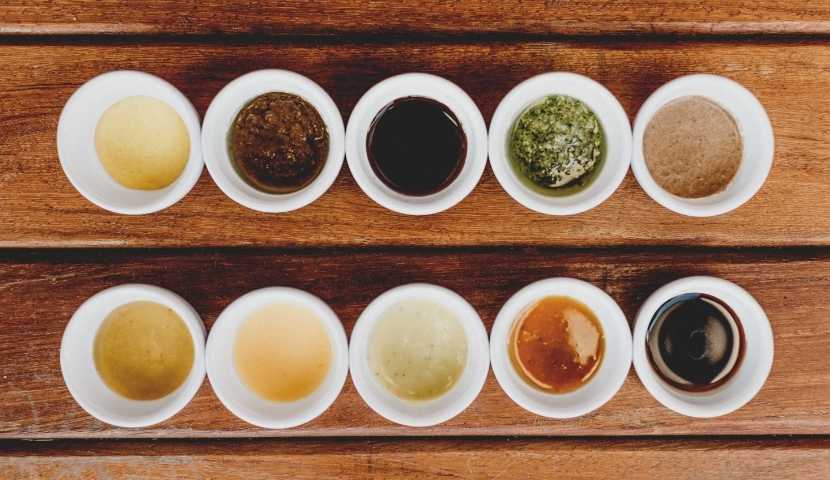Gout is a type of arthritis that results from high levels of uric acid in the bloodstream, which leads to the formation of urate crystals in the joints. These crystals can cause intense pain, swelling, and inflammation. Managing uric acid levels is key to preventing gout attacks.
Interestingly, scientific research suggests that drinking coffee may help lower uric acid levels, thus reducing the risk of gout flare-ups. This blog post explores how coffee consumption affects uric acid levels and its potential role in gout prevention.
See: Find Coffee Makers in the USA

The Link Between Coffee and Uric Acid Levels
Coffee’s Impact on Serum Uric Acid
Several studies have found a significant relationship between regular coffee consumption and lower serum uric acid (SUA) levels. One meta-analysis involving over 175,000 participants revealed that individuals who consumed 1 to 3 cups of coffee daily had notably lower uric acid levels than those who did not drink coffee.
This reduction in SUA levels occurred regardless of whether the coffee consumed was caffeinated or decaffeinated, suggesting that compounds other than caffeine may be responsible for this effect.
Gender Differences in Coffee’s Effect on Uric Acid
Interestingly, the relationship between coffee consumption and uric acid levels seems to vary based on gender. Studies suggest that women may need to consume more coffee—4 to 6 cups daily—to experience a significant reduction in SUA levels, while men benefit from 1 to 3 cups daily.
This gender-based difference in coffee’s effects on uric acid could be due to hormonal variations or metabolic differences between men and women.
Mechanisms by Which Coffee May Lower Uric Acid

Coffee appears to lower uric acid levels through several key mechanisms:
1. Inhibition of Xanthine Oxidase
One of the primary mechanisms through which coffee helps reduce uric acid levels is its inhibition of xanthine oxidase, an enzyme that plays a critical role in the conversion of purines into uric acid. Caffeine shares structural similarities with allopurinol, a common gout medication that blocks xanthine oxidase.
By inhibiting this enzyme, coffee helps reduce uric acid production in the body, thereby lowering blood uric acid levels.
2. Enhanced Uric Acid Excretion
Drinking coffee has been linked to increased renal clearance of uric acid. This means that the kidneys are better at excreting uric acid, leading to lower levels in the blood. By promoting uric acid excretion, coffee may help prevent the formation of urate crystals in the joints, which is the main cause of gout attacks.
3. Antioxidant Properties of Coffee
Coffee is packed with polyphenols, including chlorogenic acid, which possess antioxidant and anti-inflammatory properties. These antioxidants help combat oxidative stress in the body, which is known to exacerbate inflammation and increase uric acid levels.
By reducing oxidative stress, coffee may help lower the chances of gout flare-ups and reduce the overall burden of inflammation on the joints.
4. Impact on Insulin Sensitivity
Insulin resistance is a known contributor to increased uric acid production and decreased excretion. Since coffee consumption has been shown to improve insulin sensitivity, it may indirectly help in the management of uric acid levels. By improving how the body processes insulin, coffee may reduce the factors that lead to high uric acid levels.
Coffee Consumption and Gout Risk Reduction
Observational Studies
Several long-term studies have demonstrated that people who consume 4 to 5 cups of coffee per day have a 40% lower risk of developing gout compared to those who do not drink coffee. These protective effects were found to persist even after controlling for factors such as age, body mass index (BMI), and alcohol consumption. This suggests that coffee consumption may be an effective preventative measure against gout flare-ups and the development of the condition.
Mendelian Randomization Analysis
A Mendelian randomization study, which uses genetic variants to study the causal effects of coffee consumption, revealed that increased coffee intake significantly reduced the risk of gout, independent of its effects on uric acid levels. This finding suggests a direct, causal link between coffee consumption and reduced gout risk, rather than simply a correlation.
Types of Coffee and Their Effects

Caffeinated vs. Decaffeinated Coffee
Both caffeinated and decaffeinated coffee have been shown to help reduce uric acid levels, although the effects may differ slightly. Caffeinated coffee is believed to have a more pronounced impact due to its caffeine content, which inhibits xanthine oxidase.
On the other hand, decaffeinated coffee still offers benefits, possibly due to other bioactive compounds present in coffee, such as polyphenols and chlorogenic acids. Therefore, whether you choose caffeinated or decaffeinated coffee, both types may help manage uric acid levels and reduce gout risk.
Coffee Additives
It’s essential to be cautious about what you add to your coffee. Adding large amounts of sugar, high-fat creamers, or flavored syrups can nullify the positive effects of coffee on uric acid levels. These additives may contribute to weight gain, increased insulin resistance, and higher uric acid levels.
To maximize the benefits of coffee for gout prevention, it’s best to consume coffee without excessive sugar or cream. If you prefer a little sweetness, try adding a natural sweetener like stevia or opt for unsweetened almond milk as a creamer.
Recommended Coffee Consumption for Gout Management

Optimal Intake for Gout Prevention
For individuals looking to lower uric acid levels and reduce the risk of gout attacks, consuming 1 to 3 cups of coffee daily is ideal. This amount has been associated with lower serum uric acid levels and a reduced risk of gout.
Be mindful not to exceed this amount, as excessive caffeine consumption may lead to other health issues like insomnia, increased heart rate, or gastrointestinal discomfort.
Additional Considerations for Gout Management
When incorporating coffee into your gout management plan, consider the following:
- Hydration: Coffee is a diuretic, meaning it can increase urination and potentially lead to dehydration. It’s essential to balance coffee consumption with adequate water intake to stay hydrated.
- Diet: In addition to drinking coffee, it’s important to maintain a healthy, balanced diet. Avoid purine-rich foods like red meat, shellfish, and alcohol, as they can increase uric acid production. Instead, focus on consuming plenty of fruits, vegetables, whole grains, and low-fat dairy products.
- Medical Advice: Before making significant changes to your diet or coffee consumption, consult with a healthcare provider, particularly if you have existing health conditions such as kidney disease or diabetes. A healthcare professional can help tailor your approach to gout management based on your individual needs.
Conclusion
Coffee may offer a natural and accessible way to manage uric acid levels and reduce the risk of gout. Through mechanisms such as xanthine oxidase inhibition, enhanced uric acid excretion, antioxidant properties, and improved insulin sensitivity, coffee can play a role in preventing gout attacks. However, it’s essential to consult with a healthcare provider before significantly altering your coffee intake, especially if you have other health conditions.
Incorporating moderate coffee consumption into a balanced lifestyle, while being mindful of additives and dietary choices, can help manage uric acid levels and reduce the risk of gout flare-ups. Whether you’re an avid coffee lover or simply looking for ways to prevent gout, this beverage could be a helpful tool in your health arsenal.
Frequently Asked Questions
Is Black Coffee Good for Uric Acid?
Yes, black coffee can be beneficial for individuals with high uric acid levels. Studies have shown that regular coffee consumption is associated with lower serum uric acid (SUA) levels, which can reduce the risk of gout attacks. The beneficial effects are attributed to compounds in coffee, such as chlorogenic acid, which may help lower uric acid levels through various mechanisms, including enhancing uric acid excretion and inhibiting uric acid production.
Is Milk Coffee Good for Uric Acid?
Milk coffee can still offer benefits for individuals with high uric acid levels, but it’s important to consider the type and amount of milk added. While coffee itself may help lower uric acid levels, adding large amounts of whole milk or cream can increase calorie intake and potentially contribute to weight gain, which may negatively affect uric acid levels. Opting for low-fat or skim milk and using moderate amounts can help maintain the potential benefits of coffee while minimizing any adverse effects.
What Kind of Coffee Is Good for Uric Acid?
Caffeinated coffee is generally more effective in lowering uric acid levels compared to decaffeinated coffee. This is because caffeine and other compounds in coffee can enhance uric acid excretion and inhibit its production. However, decaffeinated coffee still contains beneficial compounds like chlorogenic acid, which may contribute to lower uric acid levels, albeit to a lesser extent.
Is 3-in-1 Coffee Good for Uric Acid?

3-in-1 coffee mixes, which typically contain coffee, sugar, and creamer, may not be ideal for individuals with high uric acid levels. The added sugar and creamer can increase calorie intake and potentially contribute to weight gain and insulin resistance, both of which can elevate uric acid levels. It’s advisable to consume 3-in-1 coffee in moderation and consider alternatives with less sugar and fat.
Can Coffee Help Prevent Gout Attacks?
Moderate coffee consumption may help prevent gout attacks by lowering uric acid levels. Research indicates that individuals who consume 4 to 5 cups of coffee daily have a 40% lower risk of developing gout compared to non-coffee drinkers. This protective effect is believed to be due to compounds in coffee that enhance uric acid excretion and inhibit its production.
Does Decaffeinated Coffee Lower Uric Acid?
Yes, decaffeinated coffee may help lower uric acid levels, although to a lesser extent than caffeinated coffee. Decaffeinated coffee still contains beneficial compounds like chlorogenic acid, which can enhance uric acid excretion and inhibit its production. However, the absence of caffeine may reduce some of the potential benefits associated with coffee consumption.
How Much Coffee Should I Drink to Lower Uric Acid?
Consuming 1 to 3 cups of coffee daily may be beneficial for lowering uric acid levels. Studies have shown that individuals who consume this amount of coffee have lower serum uric acid levels and a reduced risk of gout. It’s important to note that excessive coffee consumption can lead to other health issues, so moderation is key.
Is Coffee Safe for People with Gout?
Yes, coffee is generally safe for individuals with gout and may even offer protective benefits. Moderate coffee consumption has been associated with lower uric acid levels and a reduced risk of gout attacks. However, it’s important to consume coffee in moderation and avoid adding excessive sugar or high-fat creamers, which can negate the potential benefits.
Does Coffee Affect Kidney Function in Gout Patients?
Moderate coffee consumption does not appear to negatively affect kidney function in individuals with gout. In fact, some studies suggest that coffee may help protect against kidney damage by enhancing uric acid excretion and reducing inflammation. However, excessive coffee intake can lead to dehydration, which may strain kidney function, so it’s important to drink coffee in moderation and maintain adequate hydration.
Can Coffee Replace Gout Medications?
No, coffee should not replace prescribed medications for gout. While moderate coffee consumption may help lower uric acid levels and reduce the risk of gout attacks, it is not a substitute for medical treatment. Individuals with gout should follow their healthcare provider’s recommendations and use coffee as a complementary measure, not as a replacement for medication.
Sources:



0 Comments